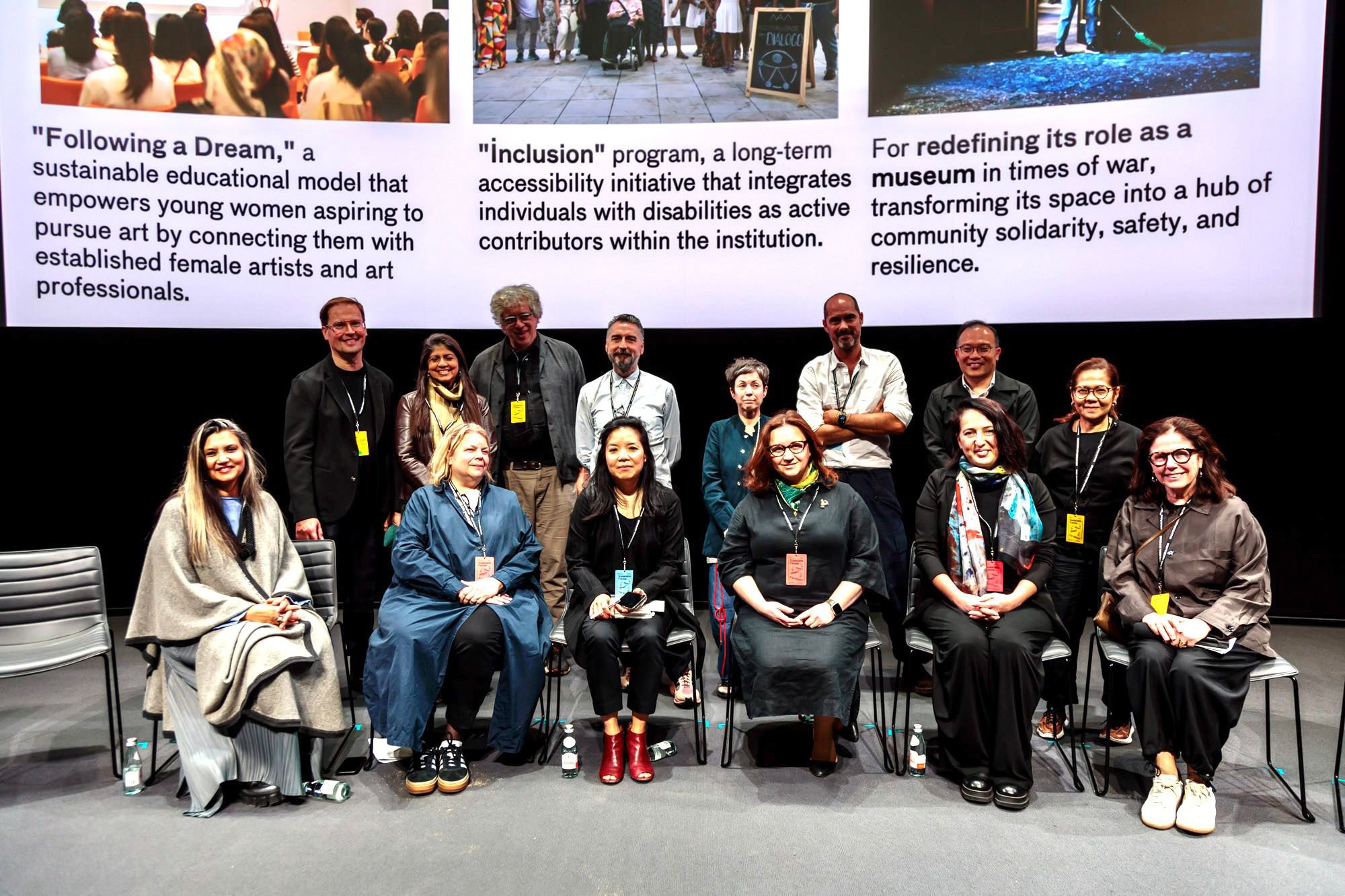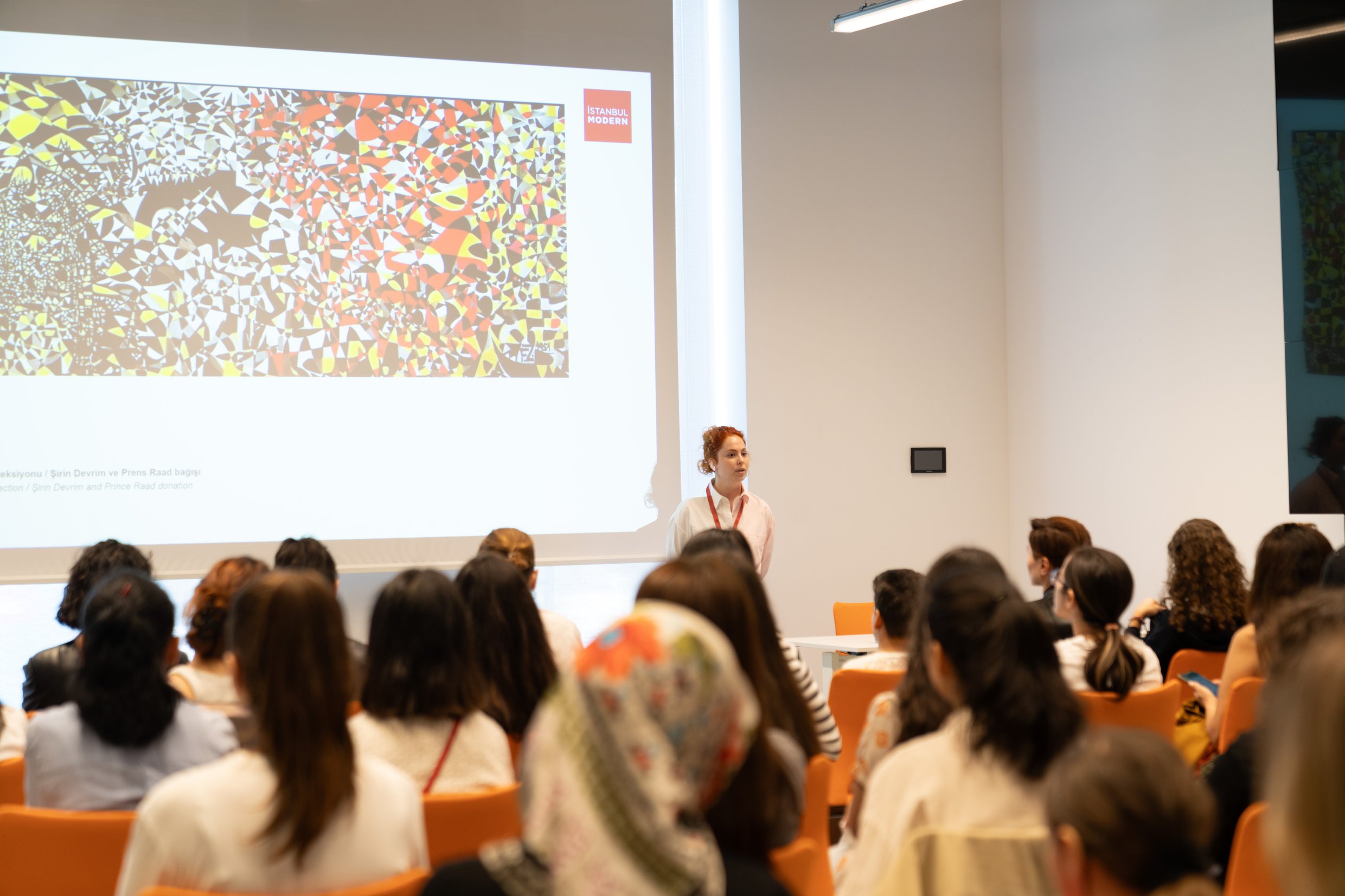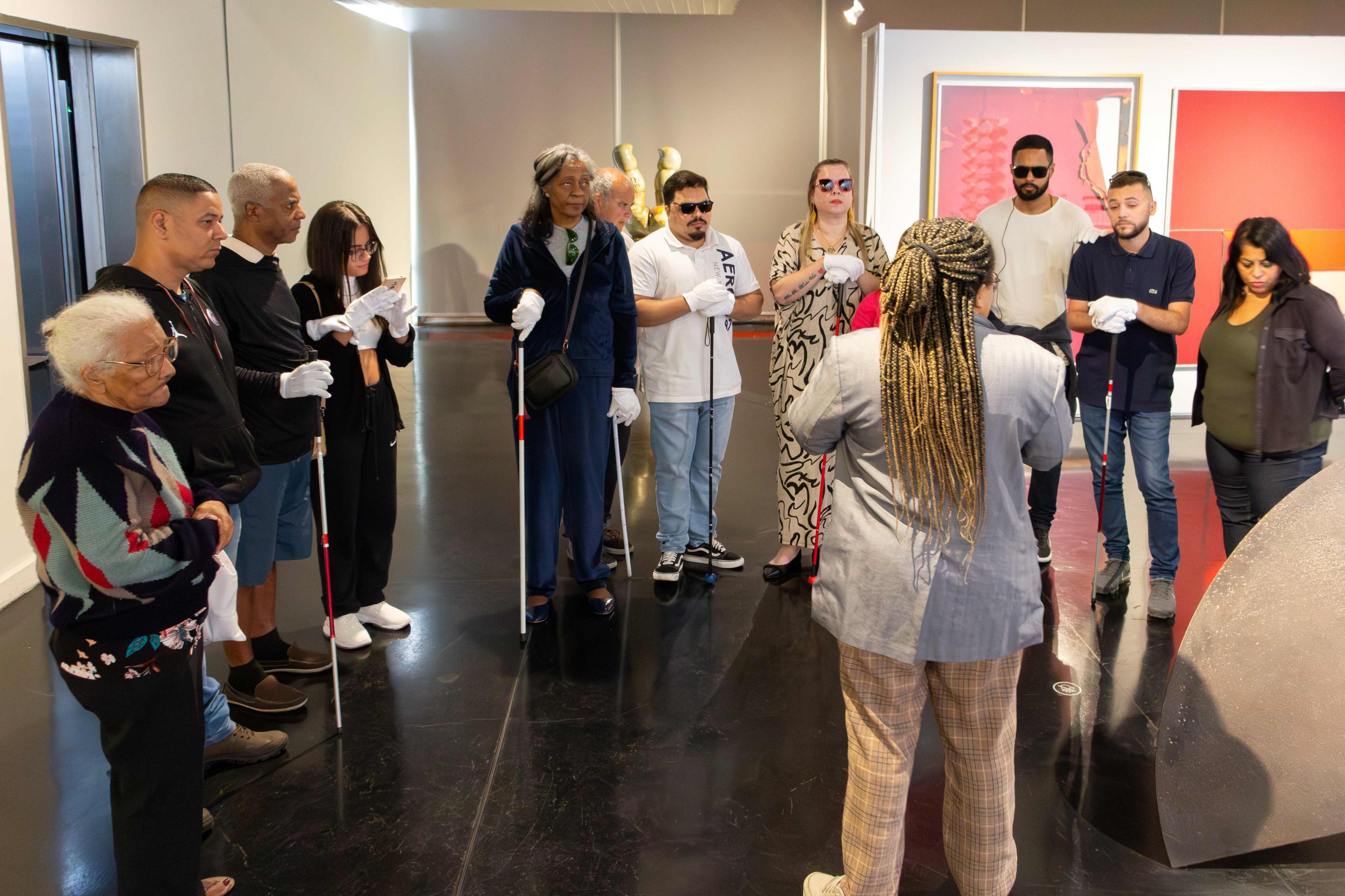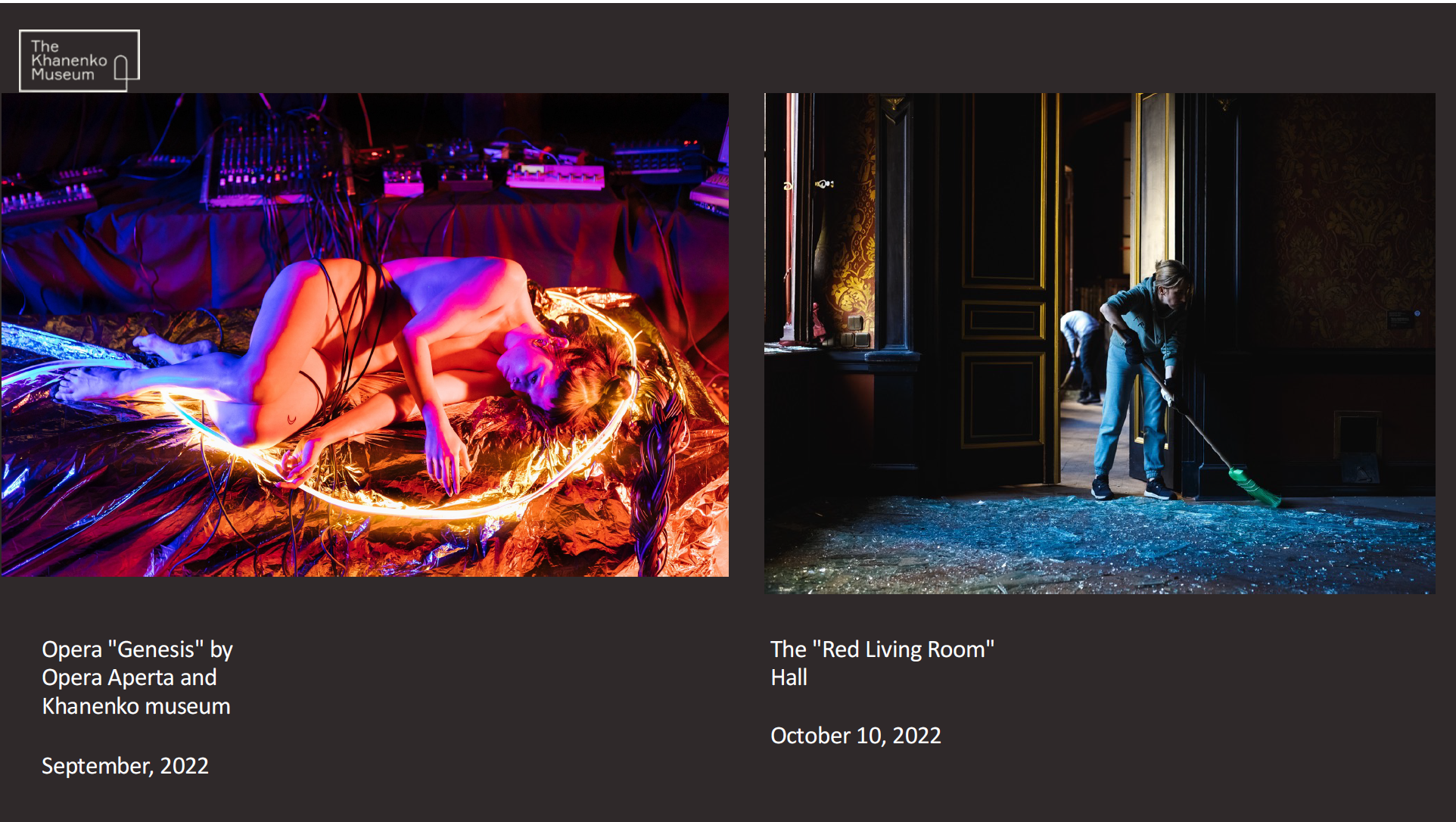CIMAM Announces Three Recipients of the 2024 Outstanding Museum Practice Award

Standing raw: Leevi Haapala. Dean, Academy of Fine Arts, University of Arts, Helsinki, Kamini Sawhney, Independent Curator, Bangalore. Bart De Baere, Director, M HKA, Antwerp. Agustín Pérez Rubio. Independent Curator, Madrid. Chus Martínez, Director, Institute Art Gender Nature, Basel. Pablo Lafuente, Artisitc Director, Museu de Arte Moderna do Rio de Janeiro. Yu Jin Seng. Director (Curatorial, Research & Exhibitions), National Gallery Singapore. Joselina Cruz. Director/Curator, Museum of Contemporary Art and Design (MCAD) Manila.
Sitting raw: Suhanya Raffel. Museum Director, M+, Hong Kong. Kitty Scott. Strategic Director, Fogo Island Arts / Shorefast, Toronto. Clara Kim, Chief Curator & Director of Curatorial Affairs, The Museum of Contemporary Art, Los Angeles. Yuliya Vaganova, General Director of the Bohdan and Varvara Khanenko National Museum of Art in Kyiv. Neslihan Varol, Director of the Education and Social Projects Department of Istanbul Modern, and Suzanne Cotter. Director, Museum of Contemporary Art Australia.
Istanbul Museum of Modern Art (Turkey), the Museum of Modern Art in Rio de Janeiro (Brazil), and the Bohdan and Varvara Khanenko National Museum of Art in Kyiv, (Ukraine) have been named OMPA 2024 winners for their progressive models and practices that can inspire museums worldwide.
Los Angeles, December 13, 2024 – During CIMAM's General Assembly at the 56th Annual Conference on Sunday 8th December in the framework of CIMAM’ Annual Conference in Los Angeles, the International Committee for Museums and Collections of Modern Art (CIMAM) announced the three recipients of its fourth edition of the Outstanding Museum Practice Award (OMPA).
Presented by Suzanne Cotter, Director of the Museum of Contemporary Art Australia, CIMAM Board Member, and Chair of OMPA's Steering Committee, the three winning institutions were recognized for innovative and transformative programs, exemplifying museum practices that foster long-term systemic change and have the potential to catalyze structural transformation within the sector.
Suzanne Cotter noted that "This year's awards celebrate groundbreaking programs in Turkey, Brazil, and Ukraine, each exemplifying new possibilities for museums that respond to CIMAM's ambition to encourage and inspire models for sustainability in the broadest sense in modern and contemporary art museums. A significant number of this year’s nominations came from museums in the Global South, which face significant challenges and yet develop innovative and substantial programs, many of these operating under precarious institutional conditions. Their approaches reflect the need to de-hierarchize structures within institutions, promoting equity among programs and underscoring that all are of equal value rather than perpetuating the primacy of exhibitions over other forms of public engagement."
The presentation ceremony, presented by Suzanne Cotter, was attended by Yuliya Vaganova, General Director of the Bohdan and Varvara Khanenko National Art Museum of Kyiv; Neslihan Varol, Director of the Department of Education and Social Projects of the Istanbul Modern; and Pablo Lafuente, Artistic Director of the Museu de Arte Moderna do Rio de Janeiro, representing their institutions.
From a field of 38 nominations across 28 countries in 5 continents, the awarded nominations were recognized for advancing gender equality, social inclusion, and community engagement, reflecting a commitment to equity and to adapting and broadening the role of the museum in ways that are relevant to their contexts.
The OMPA Committee, chaired by Suzanne Cotter, has acknowledged these three museum practices based on specific criteria.

Istanbul Museum of Modern Art, Istanbul, Turkey
Program: Following a Dream
The "Following a Dream" program is a sustainable educational model that empowers young women aspiring to pursue art by connecting them with established female artists and art professionals. In collaboration with schools, NGOs, and local governments, this program fosters creative expression and champions gender equality within Turkey's art ecosystem. By specifically addressing social exclusion and gender empowerment, the program creates a supportive space for the next generation of female artists, making it a replicable model for other institutions.
Selection Rationale: The program's commitment to long-term mentorship addressing the specific cultural context of Turkey while taking a universal approach makes it a standout initiative. By focusing on the empowerment of young women, it takes a necessary and impactful approach to gender equality in art that is emancipatory and that has the potential to empower future generations.
Istanbul Modern’s program addresses the complexities of social exclusion and women's empowerment, a vital issue in its context. Its clear focus and potential impact make it worthy of recognition.

Museum of Modern Art, Rio de Janeiro, Brazil
Program: Inclusion
The Museum of Modern Art in Rio's "Inclusion" program, a long-term accessibility initiative, integrates individuals with disabilities as active contributors within the institution. This residency program invites participants with disability to experience, evaluate, and inform museum practices, ensuring accessibility is not just an add-on but an integral institutional priority. Emphasizing professional growth and agency, this initiative goes beyond compliance by embedding inclusive representation into the museum's framework.
Selection Rationale: "Inclusion" exemplifies a progressive and long-term approach to accessibility, emphasizing the importance of agency and ongoing representation within institutional spaces. By centering individuals with disabilities in decision-making processes, the program fosters systemic change and serves as an inspiring model for museums aiming to create environments where accessibility is woven into the fabric of their operations.
The "Include" program does not view accessibility as a one-time solution; instead, it sees it as an ongoing commitment that engages individuals on multiple levels: as professionals, audiences, and contributors. This fosters a sense of agency and provides professional development opportunities.
Emphasizing representation is critical, as it tackles the common issue that mere presence does not automatically equate to agency. Furthermore, the program is not a standalone initiative; it has become an integral part of the museum. The Inclusive Residency is embedded within the museum's core activities, reflecting a commitment to long-term structural change and its ability to institutionalize the capacity to engage with people with disabilities.

Bohdan and Varvara Khanenko National Museum of Art, Kyiv, Ukraine
Responding to the ongoing war in Ukraine, the Khanenko Museum redefined its role, transforming its space into a center of community solidarity, safety, and resilience. Despite not having a contemporary art collection, the museum introduced programs featuring contemporary artists to support mental well-being and promote unity among residents. This initiative has extended beyond immediate crisis response, laying the groundwork for a more resilient, adaptive institution model capable of operating meaningfully under conditions of war and geopolitical conflict.
Selection Rationale: The Khanenko Museum's brave response to societal adversity during armed conflict highlights the potential of museums as safe havens and spaces for cultural expression. The museum has shown its capacity to adapt to crisis by embracing the languages and tools of contemporary art, allowing it to redefine its role in society and provide a public space that fosters care, solidarity, resilience, protection, and cultural connection amid the challenges of war.
By engaging with contemporary art to reflect on the museum’s mission and collection, it has created a platform for reflection and shared experiences. This approach, which positions the museum as a site for new experiences and connections with the community, is significant because it illustrates how cultural institutions can adapt and drive structural changes in times of adversity.
This initiative not only addresses the immediate challenges posed by conflict but also reimagines how museums engage with the public during crises. It expands our understanding of what it means to be inclusive, adaptive, and community-centered cultural institutions.
The OMPA award acknowledges the professionals driving these programs, whose efforts bring significant changes to established structures and inspire others to pursue similar initiatives. By fostering horizontal, team-based, and collective networks, these programs present a valued alternative to traditional organizational hierarchies. OMPA seeks to provide essential support, enabling these projects to continue, especially within the challenging conditions under which many operate. This approach aligns with the recognition that institutional structures are not fixed and that structural change enacted from within can unlock the full potential of museums as places of connection, social cohesion and well-being.
Notes to editor:
CIMAM Outstanding Museum Practice Award Working Group:
The 2023-25 CIMAM Outstanding Museum Practice Award steering committee consists of CIMAM Board members: Suzanne Cotter (Chair), Director Museum of Contemporary Art Australia, Sydney; Suhanya Raffel President of CIMAM and Director M+ Museum, Hong Kong; Joselina Cruz, Director & Curator, Museum of Contemporary of Art and Design, Manila; Leevi Haapala, Dean. Academy of Fine Arts, University of Arts, Former Director, Museum of Contemporary Art Kiasma, Helsinki; Chus Martinez, Director, Art Gender Nature Institute HGK, Basel; and Kamini Sawhney, Independent Curator, Former Director of Museum of Art & Photography, Bangalore.
About the Outstanding Museum Practice Award (OMPA)
The CIMAM Outstanding Museum Practice Award recognizes the incredible work being done in museums around the world. It is dedicated to promoting excellence in innovation in modern and contemporary art museums, encouraging public accessibility and exchange, and sustainability within the sector.
Launched in 2021, the Award is based on nominations received from across the contemporary art museum sector and aims to give greater visibility to those practices that, independent of scale and level of resources, inspire us in their relevance and connection to people, communities, and context. Nominating an outstanding practice is an opportunity to celebrate the possibilities of museums that are making a real difference.
About CIMAM
CIMAM (International Committee for Museums and Collections of Modern Art) is the only worldwide network of directors and curators of modern and contemporary art museums. Founded in The Hague in 1962, CIMAM is an affiliated organization of ICOM (International Council of Museums).
CIMAM's vision is of a world in which the cultural, social, and economic impact of modern and contemporary art museums, collections, and archives on society is widely recognized. To fulfill this vision, CIMAM's mission is to create an international and professional forum to discuss and share knowledge on topics of interest through key initiatives, such as the CIMAM Annual Conference, provide support aligned with the ethical values of the ICOM and CIMAM Code of Ethics, establish guidelines, protocols, and benchmarks of best museum practice, and to contribute to the growth of the sector by facilitating cooperation and professional development. Led by an International Board of Museum Directors and Curators, the organization draws on the collective experience of its members to advance the sector and realize the shared vision. www.cimam.org